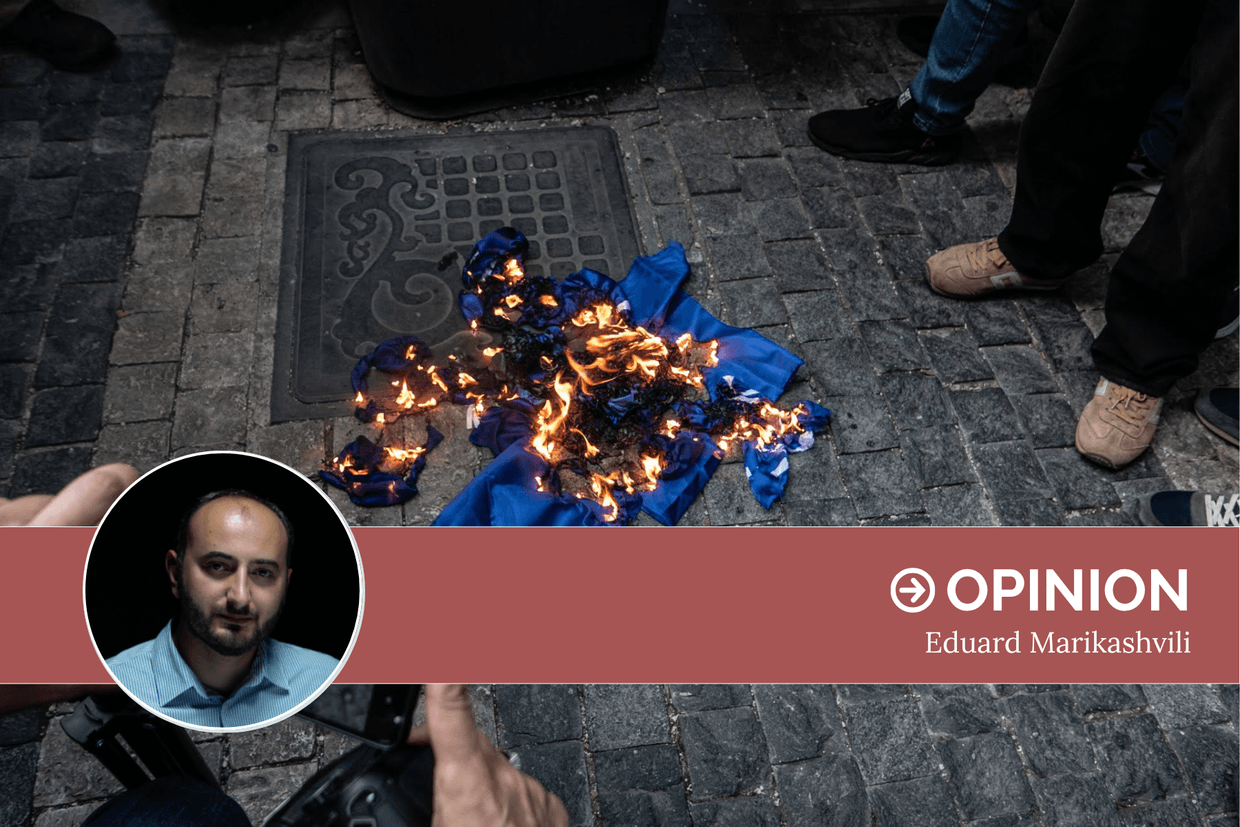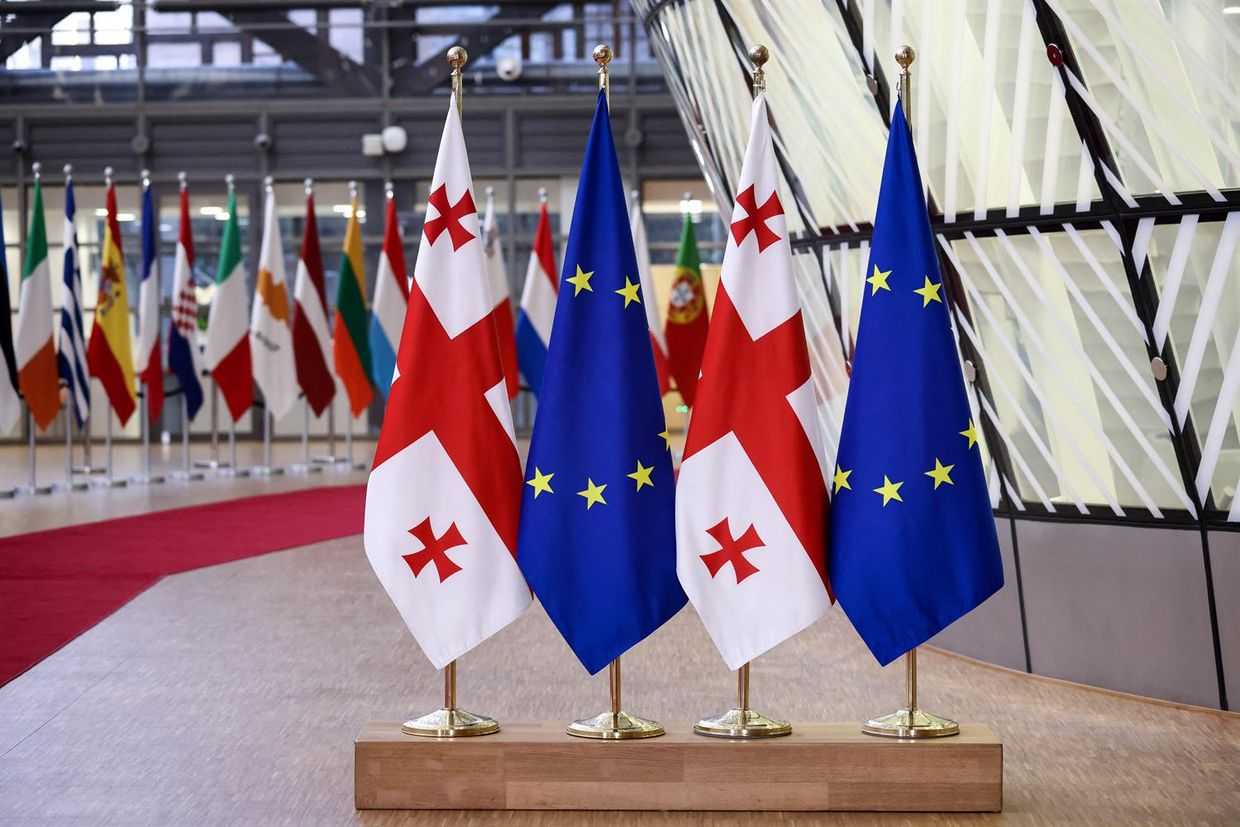Opinion | In Georgia, the EU’s commitment to democracy is being tested — and it may be failing
The EU faces a choice in Georgia: to stand up for democracy or prioritise pragmatism.

Georgian Dream’s response to the 11 July joint statement by the foreign ministers of 17 European democracies and the EU High Representative provoked widespread disbelief. For many in Georgia, the letter — issued by the party’s Political Council on 13 July — was a reckless outburst, the kind expected from a dictator out of touch with reality. But for others, it was something more calculated: a deliberate, strategic move that reflects a sober assessment of today’s international landscape and a growing confidence that authoritarianism can go unpunished.
Indeed, the tone and content of the regime’s response — delivered in the name of Georgian Dream but widely understood to be orchestrated by party founder and billionaire Bidzina Ivanishvili — reveal a bold wager: that Western democracies, despite their alarm, will issue no meaningful consequences. That even if they protest, they will ultimately prioritise geopolitical interests over democratic values.
The joint statement by the European officials expressed clear concern over the dismantling of democracy in Georgia and warned of the country’s transformation into a fully autocratic state. For many inside Georgia, this was interpreted as a final warning to the regime. Logically, such a message should have triggered a re-calibration from any regime still seeking Western legitimacy. Instead, Georgian Dream’s reply resembled less a political rebuttal and more a declaration from a mafia council — escalating the confrontation and rejecting the West’s concerns with contempt.
Georgian Dream’s response portrayed the EU statement as a coordinated attack by the ‘deep state controlled governments’, accused Western officials of spreading disinformation, and advised them to look for signs of authoritarianism in their own governments. In its final paragraph, the regime went further, urging European countries to abandon the democratic framing of their relationship with Georgia altogether. Rather than discussing democracy and human rights, the letter implied, the European democracies and the EU should approach Georgia through the lens of ‘bilateral interests’.
‘It is important for everyone to realise that just as Georgia needs Europe, no less does the European Union need Georgia’, the statement concluded.
This is not the language of a government retreating under pressure. It is the posture of a regime betting on impunity.
So, what gives Ivanishvili this confidence? Is it irrational hubris — or a reasoned assumption that the West, fatigued by global crises, lacks the will to act decisively?
Tragically, it may be the latter.
The regime seems to believe that today’s Western democracies are overstretched — distracted by war in Ukraine, rising populism at home, and the erosion of consensus within the EU. It is betting that while Western leaders may condemn Georgia’s democratic collapse, they will stop short of taking any step that could endanger the country’s geopolitical alignment or risk driving it closer to Russia.
If Ivanishvili’s gamble proves correct, the implications are devastating — not just for Georgia, but for the credibility of the democratic world.
Because this is more than a Georgian crisis. It is a test.
Georgia today stands as one of the starkest examples in Europe of democratic backsliding unfolding in full view of the international community. In just a few years, a country once considered a front-runner in democratic reform has veered sharply toward authoritarian consolidation. In this sense, Georgia has become a litmus test for whether the West is still capable of defending democratic values in real time, or whether those values have been eclipsed by the pragmatism of transactional diplomacy.
And what do democracy defenders in Georgia ask for? Not charity. Not special treatment. Only that Western democracies remember that human rights and freedom are not the monopoly of any one nation, but the collective inheritance of humankind. That when those values come under attack — in Georgia or elsewhere — they deserve active, courageous defence.
Today, Georgians take to the streets every day. They are civil society leaders, journalists, lawyers, students, workers — those who still believe that their country belongs in the democratic world. Their faith is being tested.
Ivanishvili is also watching. He believes, or has been led to believe, that the Georgian people’s faith will not be rewarded. That Western democracies no longer have the resolve to support the struggle for freedom in countries that do not sit at the centre of the geopolitical chessboard. That they will blink first.
If that turns out to be true, the damage will echo far beyond Georgia. It will tell authoritarian leaders around the world that democracy is negotiable — that repression has no cost.
But if the West chooses differently — if it listens to the voices of the Georgian people and acts boldly to defend their rights — it will send another message entirely: that democracy is not dead. That even in the face of strategic fatigue, its defenders will not walk away.
The question is no longer what Ivanishvili believes. The question is what the democratic world will do.







